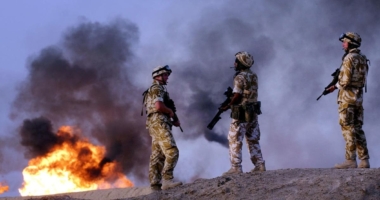The Intergovernmental Panel on Climate Change (IPCC) has released a synthesis report on climate change that warns we have fallen dangerously behind in controlling climate change. Despite this and previous warnings, the world is still dragging its feet on taking the drastic climate action needed to limit global warming to 1.5 degrees Celsius. The burning of fossil fuels has been responsible for 64% of carbon dioxide emissions since the industrial revolution, driving up the Earth’s temperature and leading to extreme weather conditions, biodiversity loss, and poverty. Leaders around the world must work together to phase out fossil fuels immediately to avert the most devastating consequences of climate change. Developed nations bear greater responsibility for climate change than those most affected by it, like Bangladesh, and must support vulnerable nations in addressing the consequences of climate change. International cooperation and treaties provide accountability and set deadlines, injecting urgency and decisiveness into climate action. The World Bank and other international financial institutions must commit to a fossil fuel phase-out that meets the 1.5C target.
Phasing Out Fossil Fuels: The Urgent Need for Action
The Intergovernmental Panel on Climate Change (IPCC), the world’s leading authority on climate science, has released a synthesis report that highlights the dire state of our planet’s climate. Despite multiple warnings from scientists, we are still far from achieving our goal of controlling climate change. The report warns that our current pace and plans are inadequate in tackling climate change, and urgent action is needed to limit global warming to 1.5 degrees Celsius.
The consequences of inaction are already visible, with millions of people across the world experiencing extreme weather conditions like floods and droughts. The US and Bangladesh have already suffered significant losses due to climate change, including economic losses and loss of life. As elected representatives of our communities, we call on world leaders to take immediate action on climate change.
The IPCC report emphasizes the urgent need to reduce our reliance on fossil fuels. The burning of coal, oil, and gas has been responsible for 64% of carbon dioxide emissions since the industrial revolution. In the past decade, this ratio has increased to 86%. These emissions are driving up the Earth’s temperature and leading to extreme weather conditions, rising sea levels, biodiversity loss, water stress, and poverty.
The fossil fuel industry has been aware of this problem for decades, but continues to prioritize profits over the well-being of the planet. It’s time for leaders to put people first and commit to phasing out fossil fuels immediately.
World leaders must take a firm stand against climate change and support vulnerable nations. This includes international financial institutions such as the World Bank. Instead of investing in fossil fuels, they must prioritize addressing climate change and supporting vulnerable communities.
The IPCC report is a stark reminder that we are running out of time to address climate change. It’s time for world leaders to act with urgency and commit to phasing out fossil fuels. Our future depends on it.
Urgent Action Needed: Commit to a Fossil Fuel Phase-out
Despite the Paris Agreement and commitments to climate action, the World Bank has continued to invest billions in fossil fuel projects, falling behind on its already insufficient climate commitments. The World Bank and other international financial institutions must take immediate action and commit to a fossil fuel phase-out that meets the 1.5C target.
Leaders around the world need to work together to address the planetary crisis we are facing. Tuvalu, Vanuatu, and the European Parliament have already endorsed the Fossil Fuel Non-Proliferation Treaty, while Colombia plans to ban new oil and gas exploration. Costa Rica and Denmark have established the Beyond Oil and Gas Alliance to phase out oil and gas production. More countries need to follow their lead.
Developed nations bear greater responsibility for climate change than those most affected by it, like Bangladesh. Wealthy countries must stop externalizing the damage of their pollution spree and support vulnerable nations in addressing the devastating consequences of climate change.
International cooperation and treaties provide accountability and set deadlines, injecting urgency and decisiveness into climate action. The global community must commit to phasing out fossil fuels immediately.
This year’s “global stocktake,” a convention held by the United Nations to measure progress in meeting the Paris Agreement goals, presents an opportunity to hit the political reset button and avert the most devastating consequences of climate change.
As hundreds of parliamentarians from around the world have called for stronger international collaboration to end fossil fuels, the moment to phase out fossil fuels for good is now.
Note: The views expressed in this article are the authors’ own and do not necessarily reflect Al Jazeera’s editorial stance.
Don’t miss interesting posts on Famousbio










